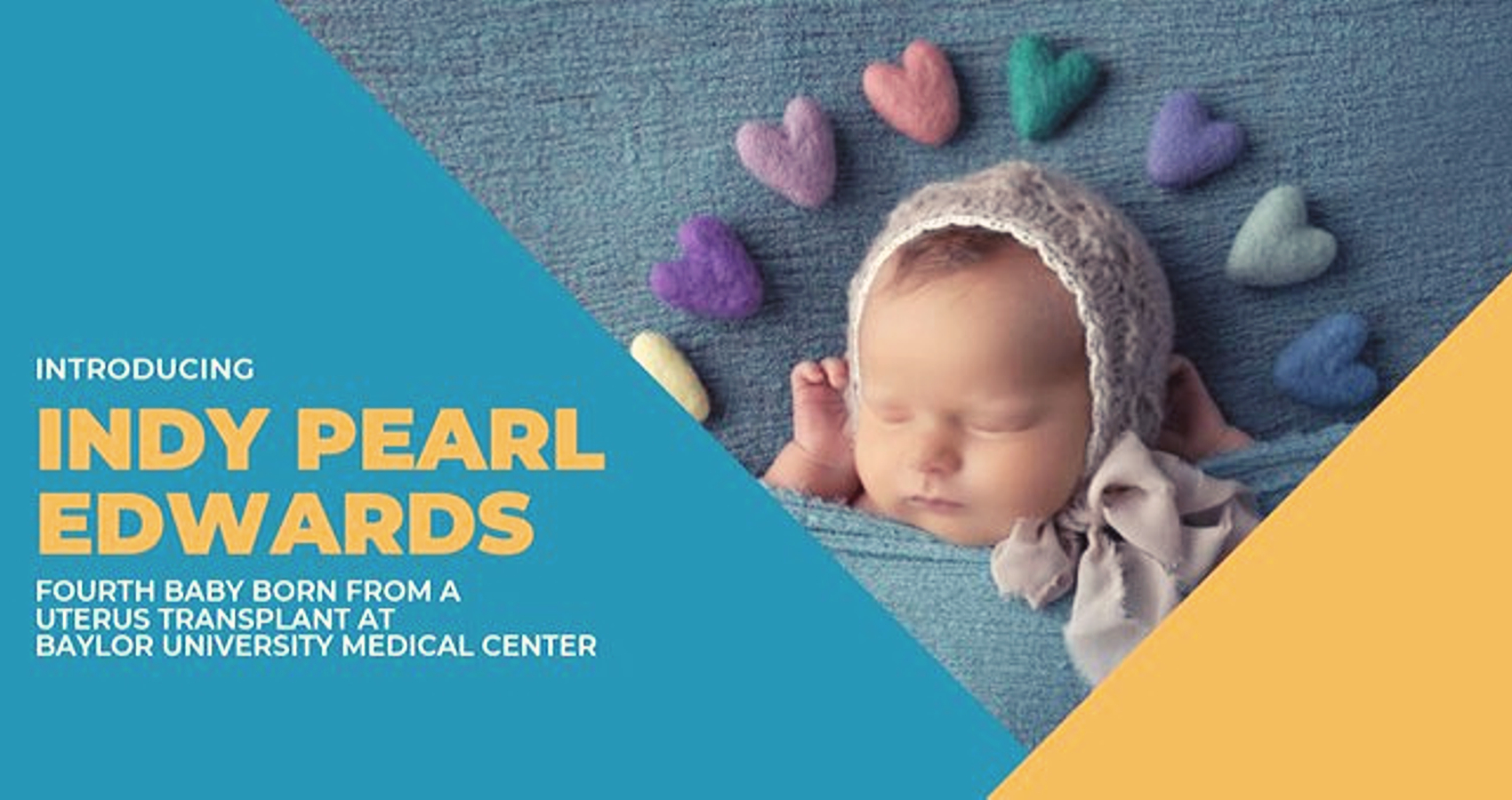Just last month, Kayla and Lance Edwards became parents for the first time. This was really quite remarkable because Kayla was born without a uterus. Thanks to a donor uterus program conducted by Baylor University Medical Center, Kayla and Lance were able to fulfill their dreams of becoming parents. Now the couple is opening up about their experience using a donor uterus in hopes of shedding light on what some feel is a taboo subject.
Kayla Edwards was diagnosed with Mayer-Rokitansky-Küster-Hauser (MRKH) syndrome at the age of 16. The syndrome causes females to be born either without a uterus or an underdeveloped uterus. She and her husband Lance had heard about a clinical trial involving transplanted uteruses at Baylor Scott & White Health’s Baylor University Medical Center in Dallas and decided to move from their home in Vancouver in hopes of being able to welcome a child of their own.
Kayla told USA Today that she had first heard of a successful uterus transplant program in Sweden in 2014, so when the couple discovered they had been accepted into Baylor's program in Dallas in 2016, they embraced the opportunity. Despite multiple setbacks including a donor arrangement that fell through and unsuccessful embryo transfers, the couple finally learned in early 2019 that Kayla was pregnant. "Like I said, it was a long journey," Kayla explained. "I didn't get pregnant as easily as some other women did. We had one egg left. The doctors told me from the start there was no guarantee. But I thought at least maybe I'll be able to help others learn from this."
When the couple learned their final embryo was successful, they were in disbelief. "I didn't believe them when they told me," Kayla said. "We were crying together, and we asked if they triple-checked that test."
On September 10, the Kayla and Lance became the fourth to successfully deliver a child as a part of the Baylor program when they welcomed their daughter, Indy Pearl Edwards. Over 30 medical professionals were in the delivery room to share the incredible experience with the new family of three. "We know them almost like friends. We know their story. We know how devastated they have been by the infertility," Liza Johannesson, the medical director of uterus transplantation at Baylor University Medical Center told USA Today. "Following them through the pregnancy and just being there and being able to deliver – it's the best day of their life. And it's also one of the best days of our life. It's absolutely amazing just to see the look in their eyes when we hold that baby up."
Although they have just welcomed Indy, both Kayla and Lance are considering the option of trying to get pregnant a second time in the future using IVF. While any correspondence with the uterus donor must be anonymous at this time, once the uterus is removed from Kayla they are allowed to meet. "I constantly think of her," Kayla said. "It gets me emotional. I hope one day we can meet and I can lay Indy in her arms and tell her how grateful we are."
Kayla told TIME Magazine that she and Lance have been so open about their story in hopes of removing some of the stigma surrounding MRKH syndrome and the use of a donor uterus. "I’ve been open since the day we left Vancouver," Kayla said. "I just hope our story gives people inspiration and hope. It is a taboo subject, and I want people to know there’s tons of support out there and people going through things with them. That has always has empowered me to share my story—so it could help somebody else."
Read Next: Mom Of 5 Donates Uterus To Another Woman After Years Of Infertility

